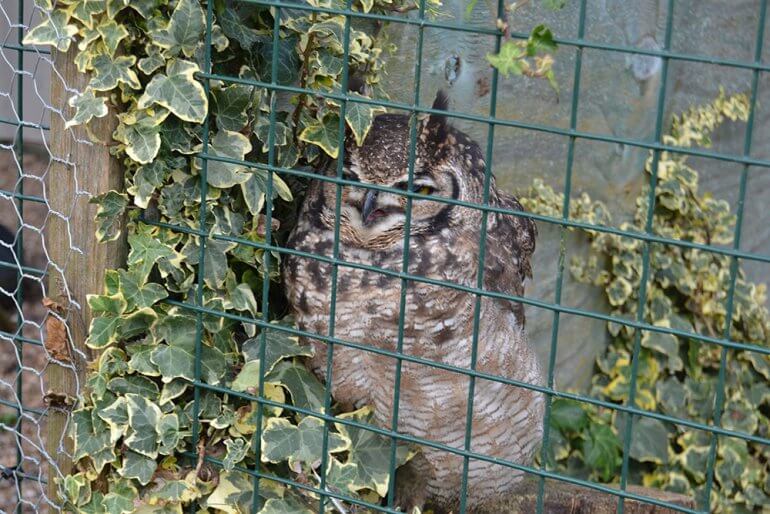‘The Primates Looked Depressed’ – Visitors Slam Nottinghamshire Zoo
Plagued by concerns over animal welfare, Wetlands Animal Park in Retford, Nottinghamshire, has shut its doors.

The owners of the zoo announced their decision to close down, citing their own retirement, soon after PETA US filed a complaint about the facility with the RSPCA and shortly before the start of the busy upcoming tourist season.
The complaint included testimony from an expert veterinarian concerning a cow’s overgrown hooves, which could lead to lameness and pain; hair loss in sheep, which may be the result of parasites, fungal or bacterial infections, and/or nutritional deficiencies; and feather loss in birds. While it’s impossible to establish the underlying cause of such feather loss without a medical exam, it could be the result of feather plucking – which can occur when birds are isolated, stressed, neglected, depressed, not exposed to enough sunlight, or suffering from skin irritation because of parasites or allergies.
PETA became concerned about the animals at the facility after receiving a report from a supporter. A glance at the zoo’s online reviews reveals that many other visitors were also worried about the animals:
- I’m deeply concerned by the welfare of the animals at Wetlands. Most of the animals seemed desperate to be fed (thankfully we had bought 4 bags of food to give them but they ran out very soon!) I didn’t see any clean drinking water for them and with the exception of the monkeys, nothing to keep them entertained, just small dirty enclosures.
- Went to the park today and left feeling miserable. The animals were in unsuitable enclosures, most with damaged fences and poor shelters. Very few had any food and none had any form of enrichment. The bison pen especially looked like it hadn’t been cleaned in weeks, but all the pens were shabby and unclean. The primates looked depressed, and their pens very small with few activities.
- The owls were kept in tiny huts with dirty water. Wallabies looked drained and worn out. Emus had a very overgrown forest that didn’t appear to have a shelter of any kind for them. The lemurs and … monkeys had old worn out rope and green knackered tyres in a small narrow enclosure.
Many of the animals at the zoo are reportedly being rehomed, but even in the most established facilities under the best conditions, a lifetime of captivity is no life at all for wild animals. Unfortunately, instances of neglect and suffering at zoos are commonplace because these facilities cannot meet the unique environmental, nutritional, climate, and social needs of every species they hold captive. In recent weeks, a crocodile was stoned to death by visitors at a zoo in Tunisia, and a white rhino was slaughtered for his horn by poachers who invaded a zoo near Paris. At Cumbria’s South Lakes Safari Zoo, nearly 500 animals perished in four years.
These incidents must be a wake-up call for zoos, whose days of denying intelligent, sensitive animals their freedom and the opportunity to engage in their most instinctive forms of behaviour – such as running, roaming vast distances, and choosing a mate – are coming to an end. There are so many enthralling and humane ways to learn about animals, including virtual reality experiences, that fewer people want to pay to see depressed, frustrated – and often neglected – animals pacing behind bars.




